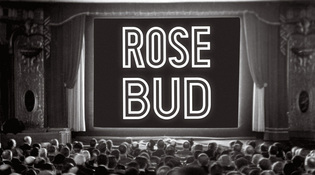 loading
loading
Arts & CultureYou can quote themYale law librarian Fred R. Shapiro is editor of the <i>Yale Book of Quotations</i>.
 Photo illustration: John Paul ChirdonView full image
To keep this column somewhat grounded in Yaleiana, I have written about the most famous quotations by Yale alumni (March/April 2007) and the most notable coinages by Yalies (January/February 2009). It was inevitable, then, that I would get around to compiling the most famous quotations by fictitious Yale alumni. Quotations from imaginary Yalies turn out to be abundant, so I will devote more than one column to them. This installment deals with the most renowned. Within that category we must give pride of place to a single book by a Princeton dropout. F. Scott Fitzgerald, in a supreme feat of artistic empathy, made the narrator of The Great Gatsby an alumnus of Yale rather than Princeton. Thus we have such immortal passages as the following from Nick Carraway, Class of 1915:
One year later, Fitzgerald was still in the New Haven mindset, and his story “The Rich Boy” had a Yale graduate named Anson Hunter, Class of 1917, as its protagonist. Hunter had a quotation that has become as celebrated as any of the Carrawayisms:
These lines are remembered because of their satirization by Ernest Hemingway in his 1936 story, “The Snows of Kilimanjaro”:
At first glance, the American Film Institute’s list of the top 100 movie quotations does not seem to contain any Yalie lines. The characters uttering “Frankly, my dear, I don’t give a damn,” “I coulda been a contender,” or “Go ahead, make my day” probably weren’t Ivy Leaguers. But then there is quote number 17. In Orson Welles’s Citizen Kane, Charles Foster Kane was described thus: “Harvard, Yale, Princeton, Cornell, Switzerland—he was thrown out of a lot of colleges.” Could it be that his renowned last utterance deserves a place among Yale soundbites?
Or would that be unfair to the other institutions with a claim to educating Kane? Maybe the honor of alma mater should be pinned on that school in Cambridge. After all, it was Harvard that expelled future publisher William Randolph Hearst—the model for Kane—after he sent engraved silver chamber pots to his professors.
The comment period has expired.
|
|